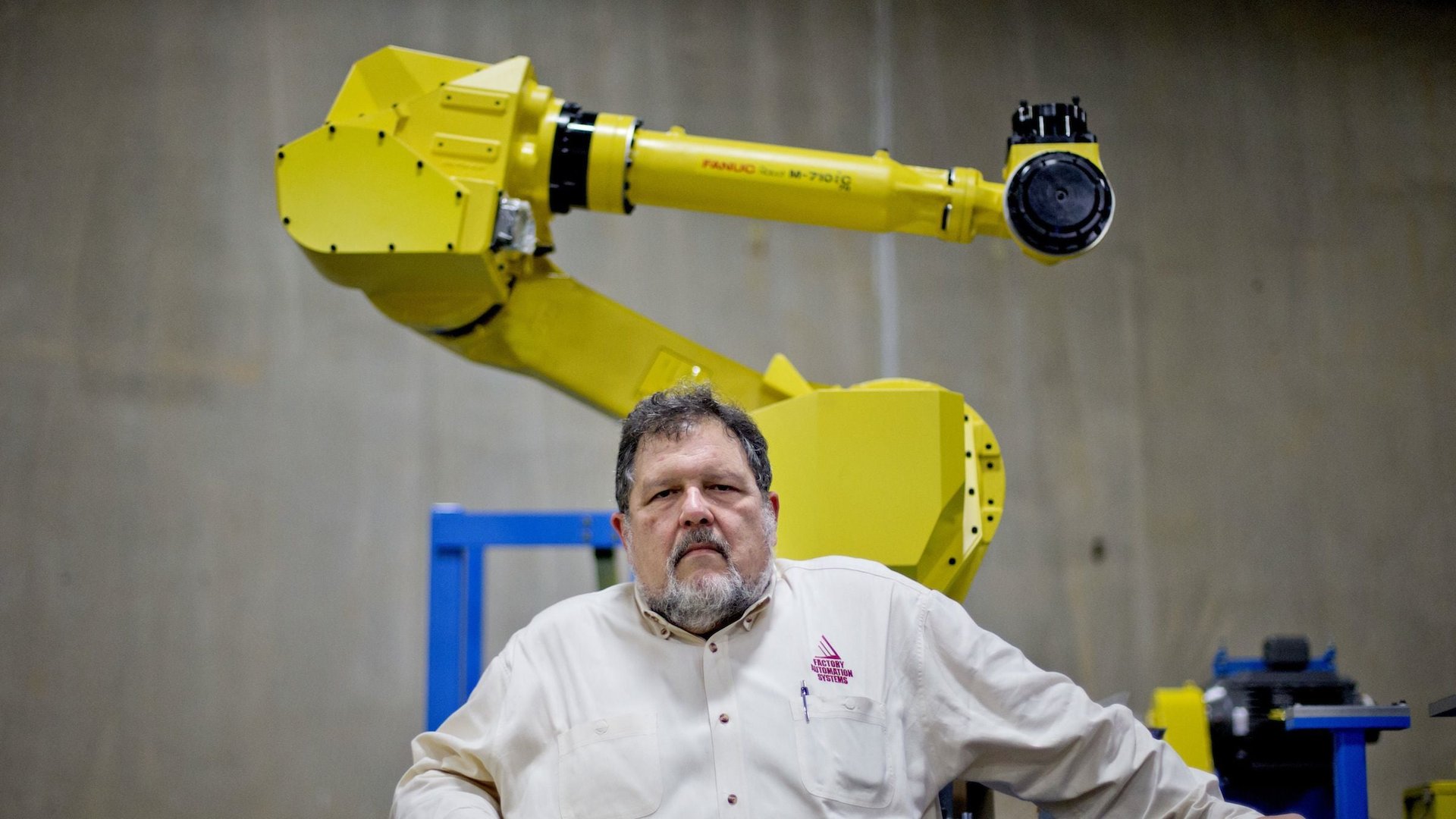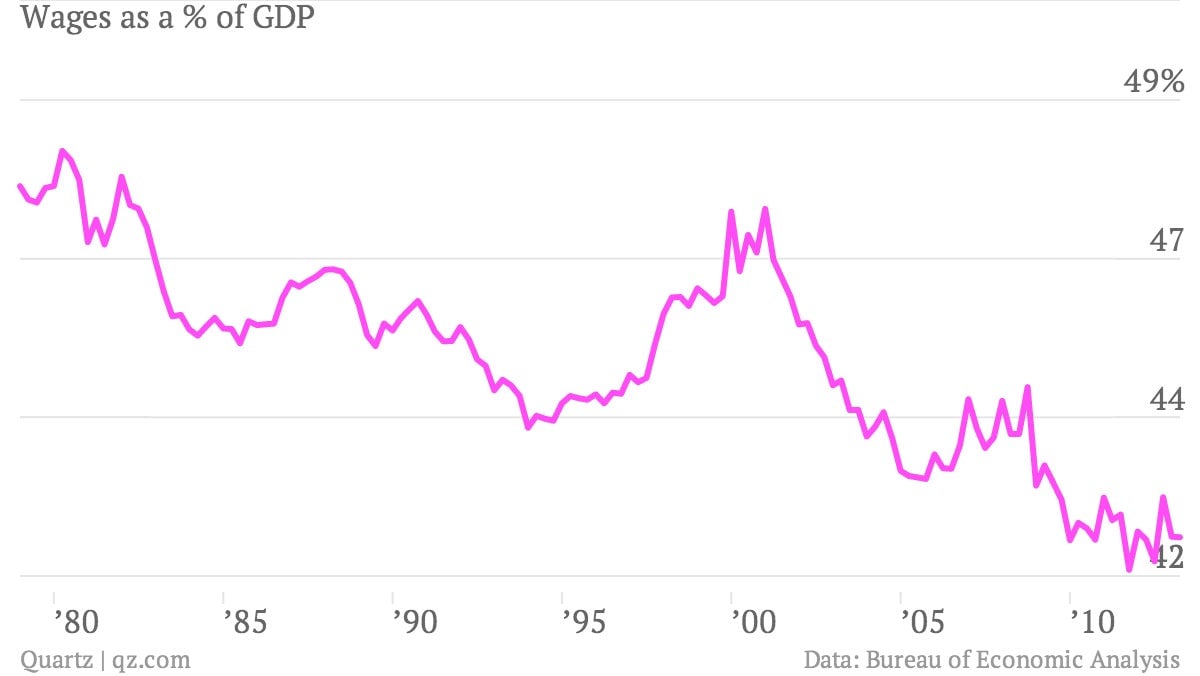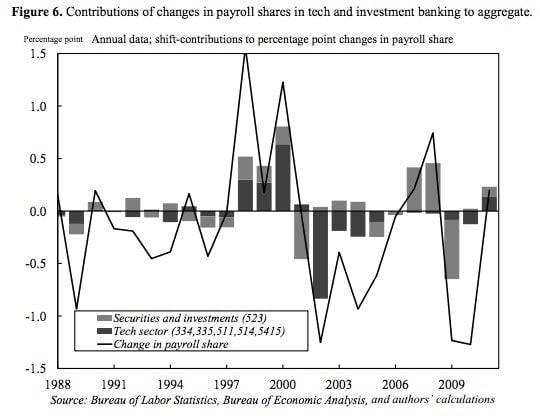Don’t blame robots for America’s falling wages: Blame trade
This chart of US wages as a share of the total economy is a favorite of ours for explaining the new economy, if not living in it:


This chart of US wages as a share of the total economy is a favorite of ours for explaining the new economy, if not living in it:

This version starts in 1980, but the decline began sometime in the 1970s. Its exact cause has been debated, but now a new paper (pdf) published by the Brookings Institution suggests that trade is at fault, not robots (an easy shorthand for all the capital investments that can replace people).
The economists—Michael Elsby, Bary Hobijn and Ayşegül Şahin—looked at a broad measure of employee compensation capturing all of labor’s share of GDP, and tested it against several different models to figure out what exactly led to this kind of decline. Unsurprisingly, as the chart above shows, they saw a fall in income paid to workers in manufacturing, trade, transportation and utilities starting in 1987, reflecting fewer workers and lower wages.
Then, we see a big pop shortly around the turn of the century. Was that the miraculous Clinton economy? There’s also a spike beginning in 2005—was that the housing bubble? These authors say yes, but the spikes don’t mean that the average worker was earning more. Rather, they reflect stock options exercised by tech moguls and bankers during these two periods, as shown here:

But forget the start-up founders and the bankers. You want to hear about robots and trade.
The study’s authors set up a few ways to test the stories we tell about the declining returns to the American worker. They looked at industries where capital investments were suddenly becoming cheaper—i.e., where the Acme Super Widget Maker 5000 suddenly became an affordable replacement for workers. They looked at industries where unionization played a large role but has diminished in recent years. And they looked at industries that started outsourcing significant parts of the supply chain.
They ran the regressions, and they found the biggest single thing responsible for falling wages across the entire labor force was import competition. This, they found, explains 3.3 percentage points of the 3.9-percentage-point decline in wages as a share of GDP (that graph at the top) over the past 25 years.
While this initial paper is by no means a definitive story, it is something of a large admission for the economics profession, which broadly supports free trade as a benefit to all parties, at least in the long run. And indeed there is also a large caveat: The study doesn’t take into account the money Americans have saved on cheaper imported goods, or the consumer surplus of the internet age.
But it still shows that technology isn’t the main force driving down wages, and that whatever the benefits of trade to the economy may be—you may find them here—they aren’t accruing in workers’ paychecks.